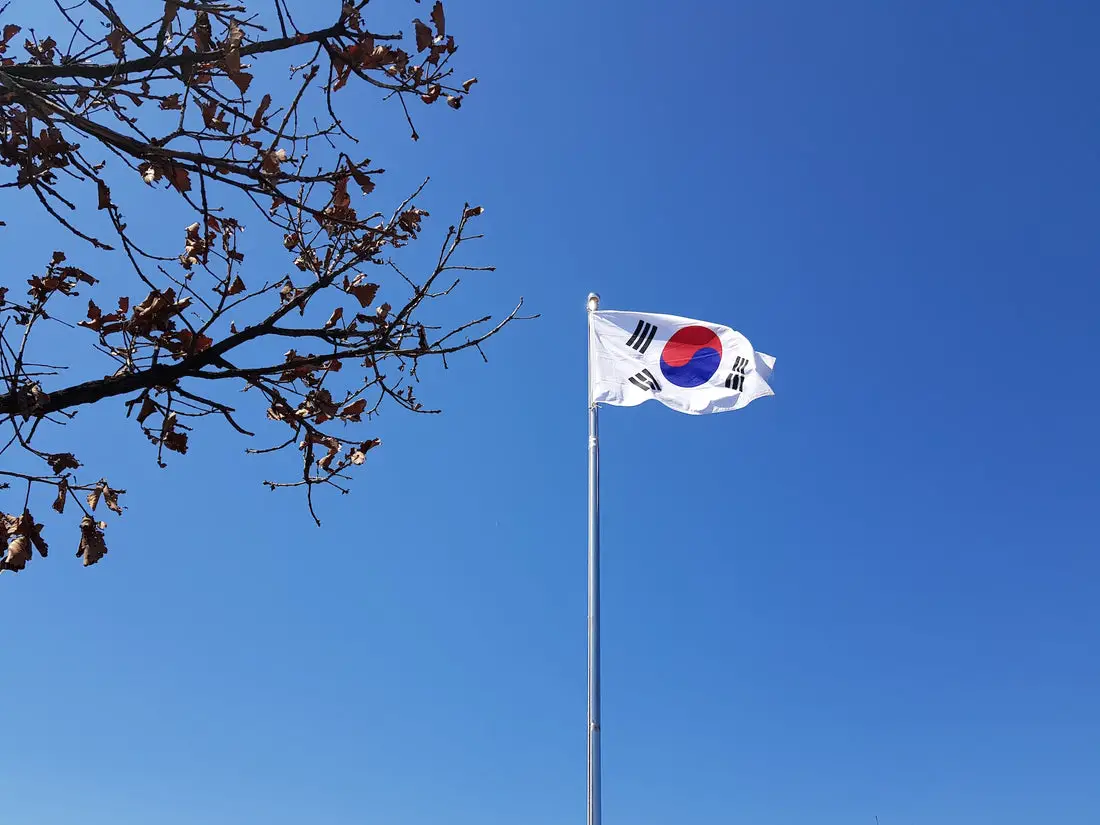Featured article photo of the South Korean flag by byunghun lee (Pexels License)
2. Kamsahamnida (감사합니다)
Try saying this word anytime you get something from someone, whether it's a service from your hotel receptionist, or when your waiter brings you food. 감사합니다 (Kamsahamnida) means a simple "Thank you", and in Korean culture, saying it will show that you are being polite and it would easily make the other person pleasant.
3. Jeogi-yo (저기요)
The closest translation of this word is in English is "Excuse me". You don't use this word when someone is blocking your way, but rather when you are trying to grab someone's attention. 저기요 (Jeogi-yo) is very commonly used in restaurants or in service establishments to grab someone's attention and request them to do something, such as when you are trying or order food or buying a movie ticket.
4. Jumun hal-kkeyo (주문 할께요)
When you are ready to order something in a restaurant, you can say 주문 할께요 (Jumun hal-kkeyo), which literally means "I will make my order". You can use this in conjunction with 저기요 (Jeogi-yo), such as: 저기요, 주문 할께요 (Jeogi-yo, jumun hal-kkeyo), which means something like, "Excuse me, I'm ready to order."
5. Mul ju-seyo (물 주세요)
Almost every Korean restaurant will serve its customers water free of charge. This is what typically happens: You walk in, sit down, and the server will simply bring a big jug of water and leave it on your table until you are ready to make an order. However, there are times when they might forget when the restaurant is crowded. When this happens, you may ask for some water by saying 물 주세요 (Mul ju-seyo), which means "Please give me some water."
6. Gyesanseo ju-seyo (계산서 주세요)
This phrase means “Please give me the bill”. In most Korean restaurants, you will not need a check and you will need go to the counter and pay. However, there are certainly a couple places where you will need to ask for a check before leaving. Just get the waiter’s attention and say 계산서 주세요 (Gyesanseo ju-seyo) and they will bring you the check. P. S. There is no need to tip in Korea!
7. Hwajangsil eodi-yeyo? (화장실 어디예요?)
Here's the classic "Where is the toilet?" phrase you need to know when in Korea. The phrase ... 어디예요? (... Eodi-yeyo?) is a useful one to know; it literally means "Where is...?" For example, if you are trying to ask "Where is the subway?", you can simply ask 지하철 어디예요? (Jihacheol eodi-yeyo?).
8. Yeogi (여기)
Sure, you may not need to be fluent in Korean before coming to Korea, but knowing how to say "Here" with 여기 (Yeogi) will be especially useful when showing a map to your taxi driver, for example. When you want to get off a taxi, you can tell your taxi driver 여기 내려주세요 (Yeogi naeryeo-juseyo), which means "Please let me off here."
9. Jeogi (저기)
저기 (Jeogi) means "There". You can use it in a similar manner with 여기 (Yeogi).
10. Dowa-ju-seyo (도와주세요)
To say "Help" in Korea, say 도와주세요 (Dowa-ju-seyo). Koreans are generally friendly and they would be happy to help tourists, but there may be cases where they don't understand what you need. At the very least, if you know this word, even if you can't explain what you need in Korean, they'd know you are asking for help and they may be able to find someone who can help you.
Want to Learn Korean? 🇰🇷
Get free vocabulary lists, frequently-used phrases, and podcast-style lessons KoreanClass101.

